Impact of Filing without an Attorney
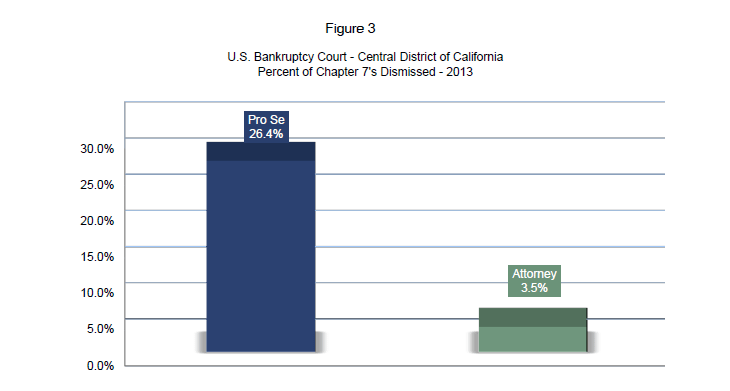
Many pro se debtors seek the protection of the automatic stay to forestall events such as imminent home foreclosures. In their haste to file their cases in order to implement the stay, they may neglect to file the correct papers or meet the necessary deadlines. Such errors and miscalculations often result in the dismissal of their case, which will have very serious ramifications if they need to refile for bankruptcy.
The success rate remains notably low for pro se filers in the Central District. For example, in 2013, over 26 percent of chapter 7 pro se cases were dismissed without receiving a discharge, compared to 3.5 percent of cases filed by an attorney. The good news is that the chapter 7 dismissal rate for self-represented debtors is much lower than in 2012. In 2012, 33.7 percent of pro se chapter 7 cases were dismissed. This was reduced to 26.4 percent in 2013. Chapter 13 dismissal rates stayed roughly the same.
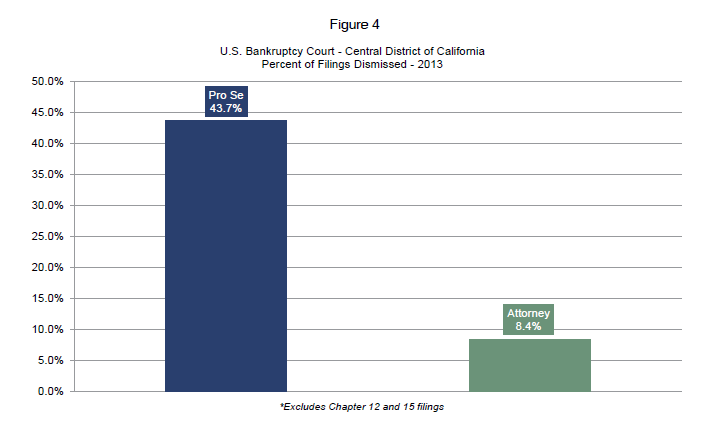
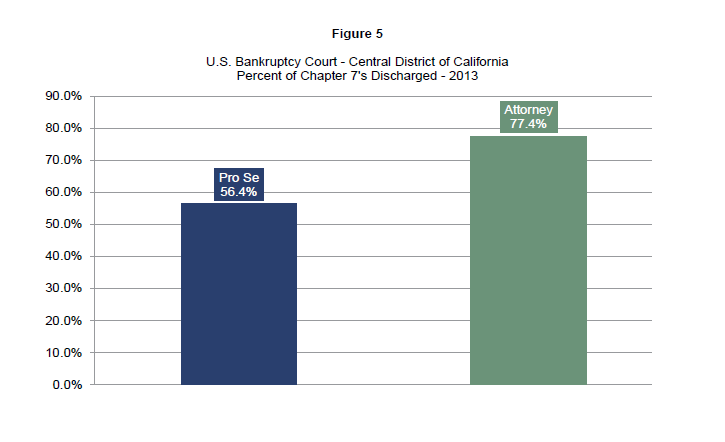
The 56.4 percent rate of discharge of chapter 7 filings in 2013 was just slightly higher than in 2012. While these rates indicate a substantial difference from attorney represented cases, they do indicate that there are ways to increase the success of debtors who cannot afford counsel.
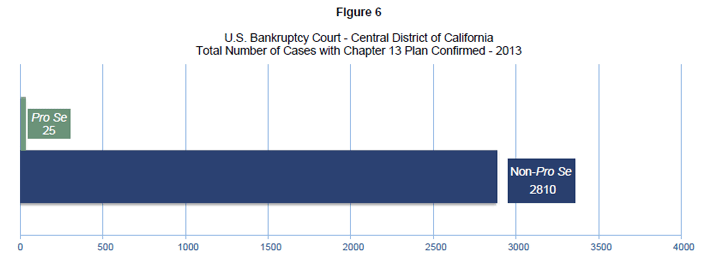
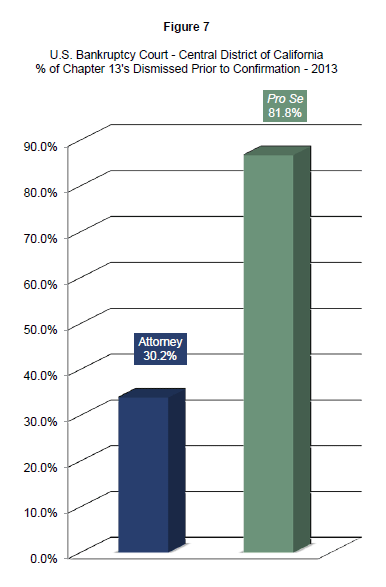
Chapter 13 continued to be a disaster for those without counsel – less than 0.1 percent of pro se chapter 13 cases were confirmed. Almost 90 percent of pro se chapter 13 cases were dismissed prior to confirmation, as compared to 34.1 percent of attorney cases.
In order to overcome the challenges faced by self-represented parties, the Court enjoys the support of a robust network of pro bono organizations to connect self-represented individuals to free or low-cost legal representation and to resources that help them navigate through the process without an attorney. Pro bono programs are available to the public in all five of the Court's divisions. Self-represented parties are informed about pro bono programs from the Court's website, Intake personnel, judges on the bench, or through flyers that accompany certain Court notices.
Without the guidance of an attorney, even basic bankruptcy procedures present challenges for many filers who really need more assistance. The flyers, website and customer service provided by the Court are simply not enough for many self-represented parties to successfully complete a bankruptcy case. As a result, managing the unfamiliarity of filers with the bankruptcy process is ultimately shouldered by the Court and trustees, resulting in problematic cases and additional paperwork. The impact of this permeates Court and trustee operations.


